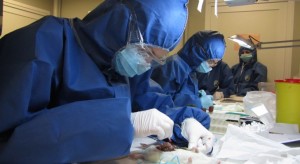Research Findings on alcohol consumption and cancers
Research Findings on alcohol consumption and cancers: The Experts Opinion

Research Findings on alcohol consumption and cancers indicates that cancer and alcohol abuse are never a good combination and nothing good can come from their association
In our previous article we dealt with the effects of alcohol and cancer risk and in particular we were able to disclose who the use of alcohol increases the risk of contracting head and neck cancer, esophageal cancer, liver cancer and breast cancer. You realize that these are not the only types of cancer that are closely associated with alcohol consumption. In this article we are going to further onto the discussion but this time focusing on the research findings on alcohol consumption and cancer. When research is done, what follows is getting the outcome of that research. In this line of duty a lot of studies have been done primarily to establish if there is any association between alcohol consumption and the risk of cancer. And other than what we discussed previously, the risk is not as evident in other cancers like cancers of the pancreas, ovary, prostate, stomach, uterus, and bladder. Therefore in these cancers cases, studies have not established any close association with alcohol or where there is evidence it was inconsistent.
However, for two cancers renal cell (kidney) cancer and non-Hodgkin lymphoma (NHL) multiple studies have shown that increased alcohol consumption is associated with a decreased risk of cancer. A meta-analysis of the NHL studies (which included 18,759 people with NHL) found a 15 percent lower risk of NHL among alcohol drinkers compared with nondrinkers. The mechanisms by which alcohol consumption would decrease the risks of either renal cell cancer or NHL are not understood.
Research Findings on alcohol consumption and cancers: How does alcohol increase the risk of cancer?
Doctor Akoury in response to this question acknowledges that several studies have in the past established numerous ways through which alcohol consumption may increase the risk of cancer. She shares with as some of them as follows:
- Metabolizing (breaking down) ethanol in alcoholic drinks to acetaldehyde, which is a toxic chemical and a probable human carcinogen; acetaldehyde can damage both DNA (the genetic material that makes up genes) and proteins
- Generating reactive oxygen species (chemically reactive molecules that contain oxygen), which can damage DNA, proteins, and lipids (fats) through a process called oxidation
- Impairing the body’s ability to break down and absorb a variety of nutrients that may be associated with cancer risk, including vitamin A; nutrients in the vitamin B complex, such as folate; vitamin C; vitamin D; vitamin E; and carotenoids
- Increasing blood levels of estrogen, a sex hormone linked to the risk of breast cancer
Alcoholic beverages may also contain a variety of carcinogenic contaminants that are introduced during fermentation and production, such as nitrosamines, asbestos fibers, phenols, and hydrocarbons.
Research Findings on alcohol consumption and cancers: How does the combination of alcohol and tobacco affect cancer risk?
Epidemiologic research shows that people who use both alcohol and tobacco have much greater risks of developing cancers of the oral cavity, pharynx (throat), larynx, and esophagus than people who use either alcohol or tobacco alone. In fact, for oral and pharyngeal cancers, the risks associated with using both alcohol and tobacco are multiplicative; that is, they are greater than would be expected from adding the individual risks associated with alcohol and tobacco together.
Research Findings on alcohol consumption and cancers: Can a person’s genes affect their risk of alcohol-related cancers?
The answer to this question is yes. It is actually true that a person’s risk of alcohol-related cancers can be influenced by their genes, and specifically when the genes that encode the enzymes is involved in metabolizing that is breaking down of alcohol. For example, one way the body metabolizes alcohol is through the activity of an enzyme called alcohol dehydrogenase, or ADH. Many individuals of Chinese, Korean, and especially Japanese descent carry a version of the gene for ADH that codes for a “super-active” form of the enzyme. This super-active ADH enzyme speeds the conversion of alcohol (ethanol) to toxic acetaldehyde. As a result, when people who have the super-active enzyme drink alcohol, acetaldehyde builds up. Among people of Japanese descent, those who have this super-active ADH have a higher risk of pancreatic cancer than those with the more common form of ADH.
Research Findings on alcohol consumption and cancers: Can drinking red wine help prevent cancer?
Researchers conducting studies using purified proteins, human cells, and laboratory animals have found that certain substances in red wine, such as resveratrol, have anticancer properties. Grapes, raspberries, peanuts, and some other plants also contain resveratrol. However, clinical trials in humans have not provided evidence that resveratrol is effective in preventing or treating cancer. Few epidemiologic studies have looked specifically at the association between red wine consumption and cancer risk in humans.
Research Findings on alcohol consumption and cancers: What happens to cancer risk after a person stops drinking alcohol?
Most of the studies that have examined whether cancer risk declines after a person stops drinking alcohol have focused on head and neck cancers and on esophageal cancer. In general, these studies have found that stopping alcohol consumption is not associated with immediate reductions in cancer risk; instead, it may take years for the risks of cancer to return to those of never drinkers.
For example, a pooled analysis of 13 case-control studies of cancer of the oral cavity and pharynx combined found that alcohol-associated cancer risk did not begin to decrease until at least 10 years after stopping alcohol drinking. Even 16 years after they stopped drinking alcohol, the risk of cancer was still higher for ex-drinkers than for never drinkers.
In several studies, the risk of esophageal cancer was also found to decrease slowly with increasing time since stopping alcohol drinking. A pooled analysis of five case–control studies found that the risk of esophageal cancer did not approach that of never drinkers for at least 15 years after stopping alcohol drinking.
Cancer is a killer disease and alcohol is equally very bad for your health even if you were not struggling with cancer. What benefit can one get from alcohol especially when you are also on cancer treatment? Certainly nothing good will come out of it. However if you are so much into alcohol and you feel like you cannot get along without drinking, then you must and timely consult with your doctor. Your doctor who has been administering treatment on you will able to advice you professionally on specific issues including whether drinking whether drinking alcohol is safe with particular chemotherapy drugs or other medications prescribed along with chemotherapy. Nonetheless you can also seek for professional help from other medical experts like doctor Dalal Akoury, all you need to do is to call her for an appointment and she will gladly give you her best from her experience of over two decades of practice.
Research Findings on alcohol consumption and cancers: The Experts Opinion



